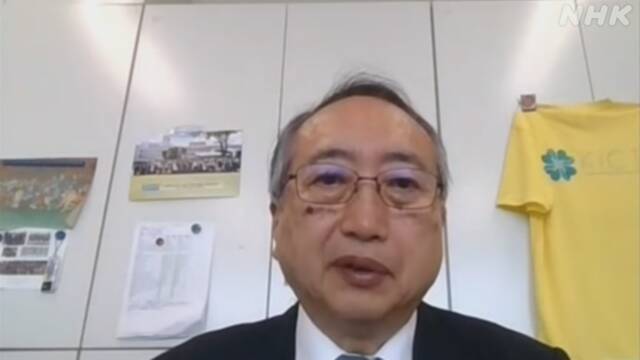"Stress in hospital beds" Palliative tendency except for Tokyo Medical system needs maintenance May 12 15:27
When we asked NHK prefectures about the medical system for the new coronavirus, we found that all prefectures except Tokyo were below 80% of the beds that were able to secure the number of inpatients. It turns out that the tight situation is being alleviated. It is because the number of infected people is decreasing, but it is necessary for experts to continue to improve the medical system because there is a possibility that the number of patients will increase in the areas where the number of patients was small if the number of people moving increases I am.
NHK has interviewed prefectures through broadcasting stations nationwide about the number of hospital beds and hospital beds corresponding to the new coronavirus as of the 11th.
According to it, the number of beds secured for hospitalization of new coronavirus patients is 14,700 beds nationwide, an increase of more than 2,100 beds compared to the previous survey conducted on 27th of last month. It was.
On the other hand, the current number of inpatients was about 4,900, which was about 1,400 less than the previous time.
Furthermore, the number of people who are receiving medical treatment or waiting at accommodation facilities or homes has decreased by nearly 1,200, compared to the previous time, to approximately 1,250 in 26 prefectures.
As a result, the number of inpatients and those requiring hospitalization exceeds 80% of the number of beds that can be secured by prefecture, but only in Tokyo this time from the previous 3 prefectures. It was
Other than that, only about 70% of Hokkaido and about 60% of Ishikawa Prefecture exceeded 50%, and the situation where the beds were tight was further alleviated.
On the other hand, when I asked about the number of beds that can handle seriously ill patients who need treatment in intensive care units, 16 prefectures said they were unpublished or unknown in the total, but about 1700 nationwide. There were approximately 290 critically ill and hospitalized critically ill patients.
Of these, in Hokkaido, 23 people are hospitalized for the 32 beds reserved for the severely ill in Sapporo City, and about 70% are in use.
In addition, when asked about their concerns about the medical system, they said that they were worried about preparing for the second wave of the spread of infection, and that their response had been prolonged and their medical staff had reached the peak of fatigue. Is coming out.
Many also cite prejudice and discrimination against health care providers who treat patients and the continued difficulty of securing health care workers and medical masks and gowns.
Nobuhiko Okabe, director of the Kawasaki City Health and Safety Research Institute, who is familiar with infectious diseases, said, “In the future, if the number of people moving increases, the number of patients will increase and the number of severely ill patients may increase. Medical staff are required, so the local government must cooperate with medical institutions and proceed with the maintenance of the medical system, such as securing staff and hospital beds, without sacrificing it. "
Expert "without system loosening"
In addition, Okabe, director of the Kawasaki City Institute of Health and Safety, said, `` In addition to many medical staff such as doctors, nurses, and clinical engineering technologists who are hospitalized for a long period of time for critically ill patients, as well as staff who support rehabilitation after receiving treatment. With this in mind, the local government needs to cooperate with medical institutions and secure staff and beds, and proceed without loosening the medical system. "

